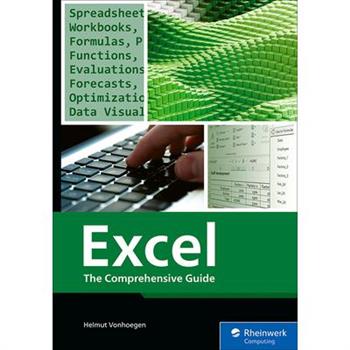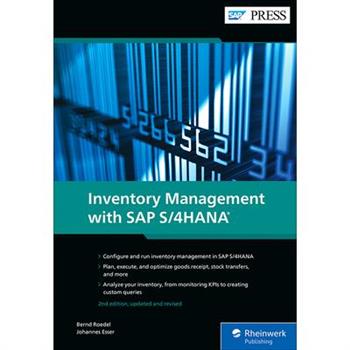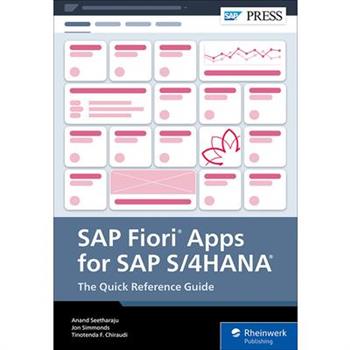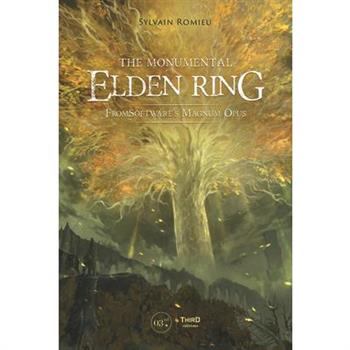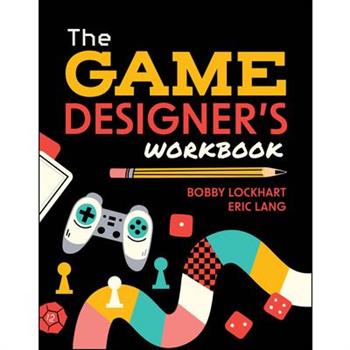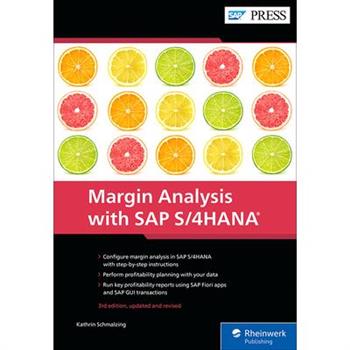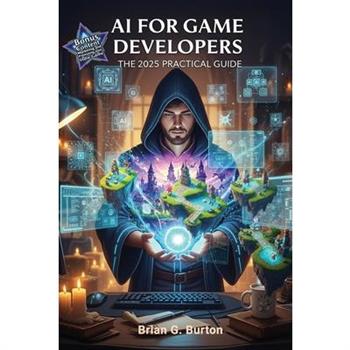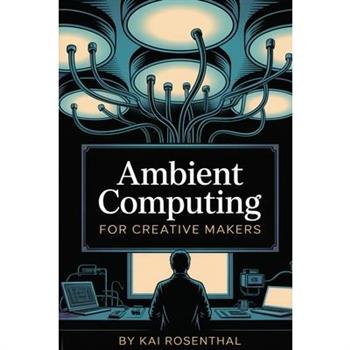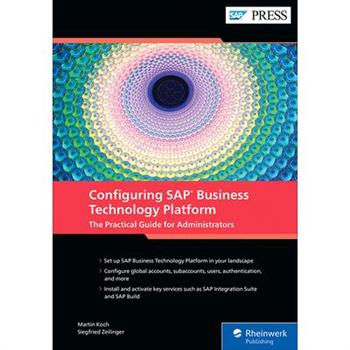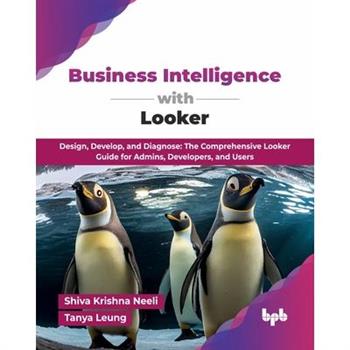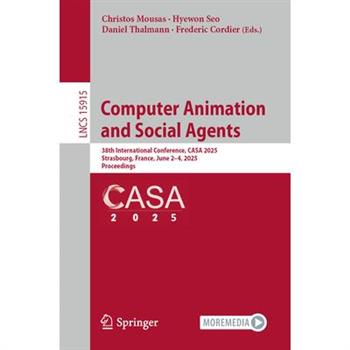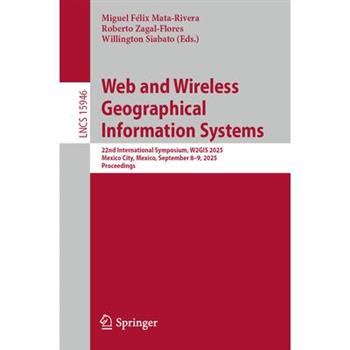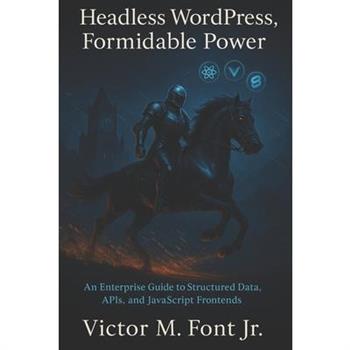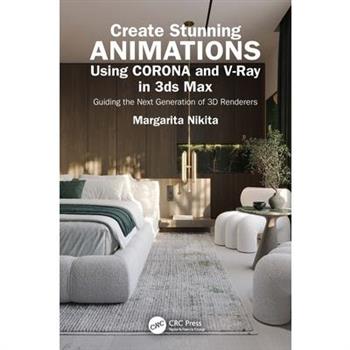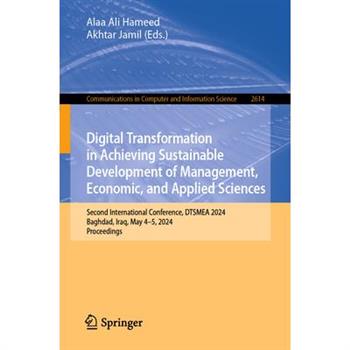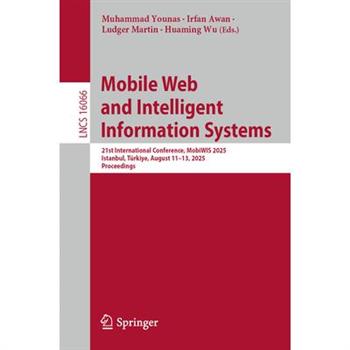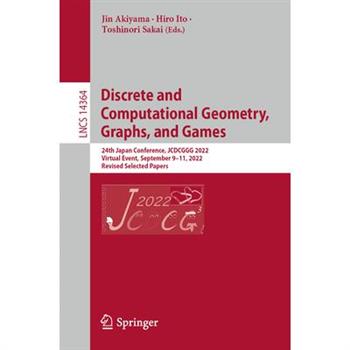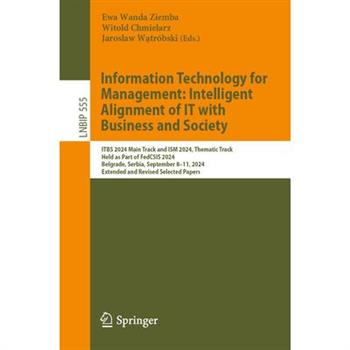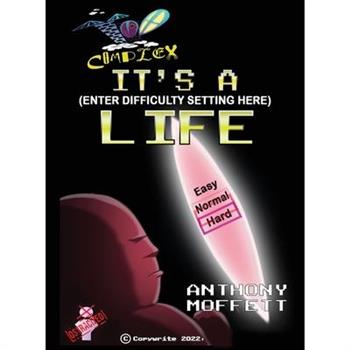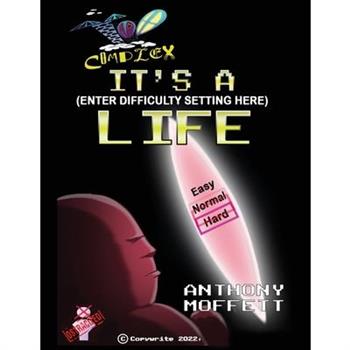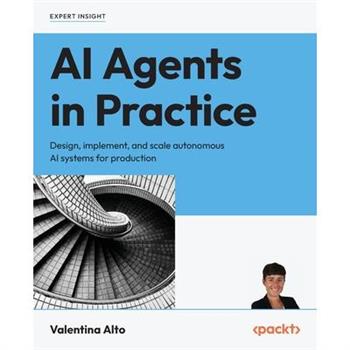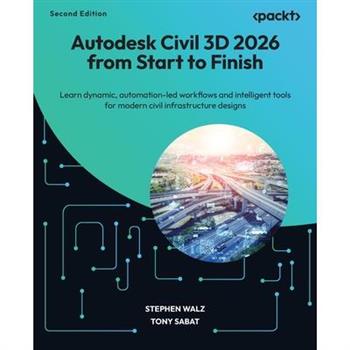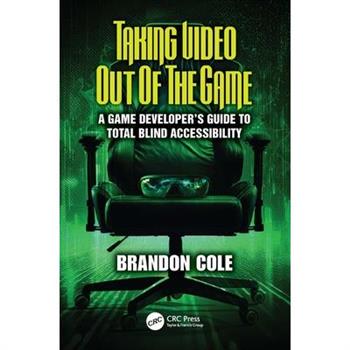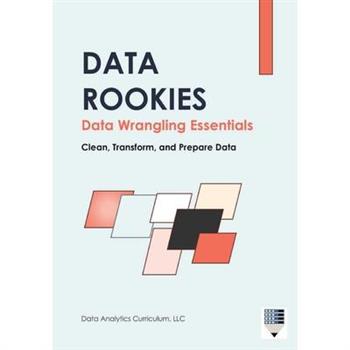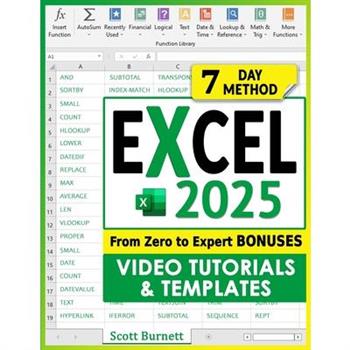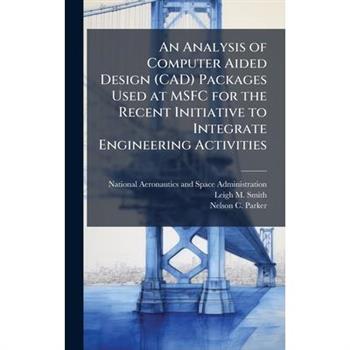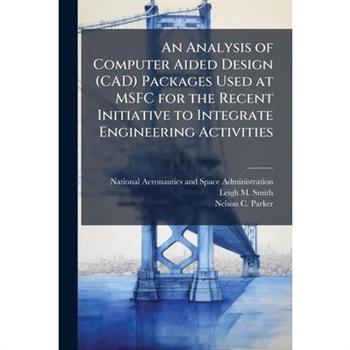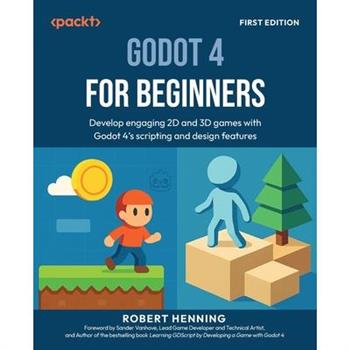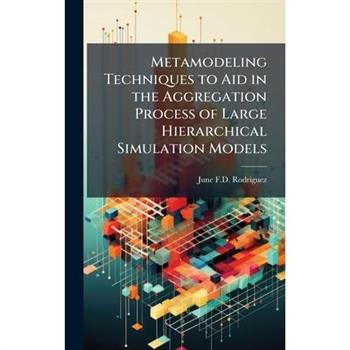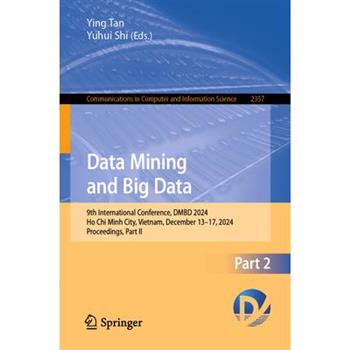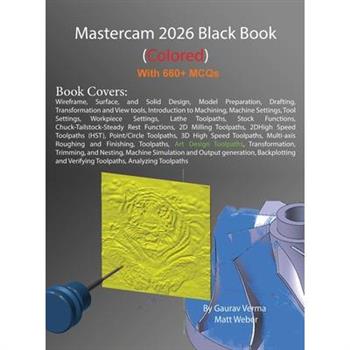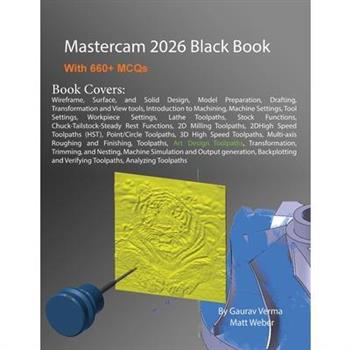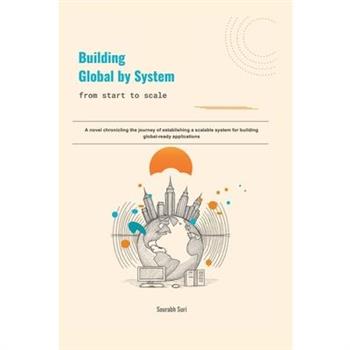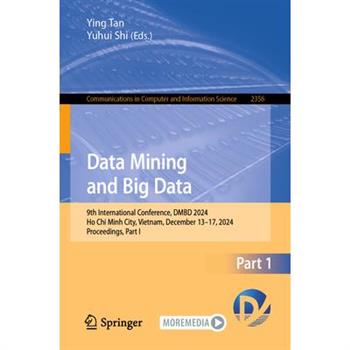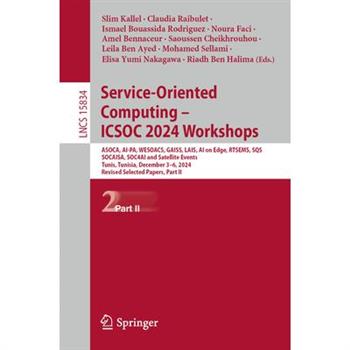Excel
If you're using Excel, this is the all-in-one manual you need--brimming with solutions for every conceivable task! Learn how to design tables, use formulas to perform calculations, create analyses, graphically present your data, and share your results. With detailed coverage of both basic functions and advanced features, this book provides guidance for beginners and serves as a reliable reference if you're already familiar with Excel. Up to date for Excel 2024 and Microsoft 365!In this book, you'll learn about: a. Excel Fundamentals Follow a workflow that guides you through Excel's user interface, introduces basic concepts, and demonstrates the core features for working with tables, diagrams, and files. b. All Your Excel TasksDive into everything Excel has to offer. Master spreadsheet functions, formula usage, and table design. Get step-by-step instructions for analyzing, visualizing, and publishing your data; then see how to automate and customize your tasks with macros and VBA. c. Practical ExamplesSee Excel's features in action. Detailed examples and annotated screenshots guide you through each and every spreadsheet function, table design and analysis, data model management, and more. Highlights include: 1) Mastering basic features2) Creating spreadsheets3) Working with formulas4) Evaluating what-if analyses5) Designing charts and diagrams6) Visualizing data with sparklines7) Organizing data in tables8) Exporting, importing, and exchanging data9) Automating tasks with macros10) Using Visual Basic for Applications (VBA)
Intro to Game Programming Using DirectX 12
Inventory Management with SAP S/4hana
Are you ready to manage inventory in SAP S/4HANA? Get the instructions you need in this comprehensive guide. Start by configuring inventory-specific and cross-functional settings to suit your business needs. Then use SAP Fiori apps to plan and adjust your inventory, execute core inventory and production processes, and analyze your results. Optimize your workflow with machine learning capabilities, explore real-world scenarios, and more with this hands-on resource!In this book, you'll learn about: a. Configuration Set up inventory management in your SAP S/4HANA system. Follow click-by-click instructions to configure inventory settings in procurement, logistics execution, production planning, stock transport, and more. b. Planning, Execution, and Analysis Master the inventory optimization cycle. Design planning strategies, perform goods receipt, and execute key processes such as stock transfer posting, physical inventory, and production. Use analytics tools to assess important KPIs. c. Your Inventory LandscapeSee how to handle inventory management in on-premise, cloud, and hybrid landscapes. Work with the latest cloud solutions, from SAP IBP to SAP Business Technology Platform to SAP Datasphere.Highlights include: 1) Inventory optimization2) Inventory planning 3) Goods receipt4) Stock identification and transfer5) Physical inventory6) Production execution7) Inventory analysis8) Configuration9) Best practices10) Real-world scenarios
SAP Fiori Apps for SAP S/4hana
Are you working with SAP Fiori? Then you need an encyclopedia of applications at your fingertips! Look up more than 1,700 apps and find need-to-know information: What does the app do? How does it enhance your workflow? Does it replace an old, outdated transaction code? Organized alphabetically for your core functional areas, and including a comprehensive index, this is the deskside handbook you need to navigate the SAP Fiori world. In this book, you'll find: a. Apps for Your Business Processes From FI-CO to materials management and beyond, find the apps that are critical to your workday. Get expert tips and tricks on how to use key applications efficiently and optimize the SAP Fiori UX. b. The New Way of Working Understand the evolution from SAP GUI to SAP S/4HANA's new-and-improved user experience, SAP Fiori. Connect the dots between classic transaction codes and the latest applications with comparable functionality. c. An Easy-to-Use ReferenceFlip through pages of apps organized alphabetically by functional area, or use the index to look up specific applications based on their name, type, SAP Fiori ID, or related transaction code. Highlights include: 1) Financial accounting2) Controlling3) Inventory management4) Sales and distribution 5) Warehouse management6) Production planning7) Plant maintenance8) Materials management9) Quality management10) Cross-functional applications 11) Easy reference index
The Game Designer's Workbook
Hands-on tools, exercises, walkthroughs, and resources for new game designers. All you need is a pencil! In The Game Designer's Workbook, two experienced game designers, Bobby Lockhart and Eric Lang, walk you through design tips and exercises you can apply immediately to take your next game to the next level. The authors draw on decades of combined experience in game design, helping you ideate, storyboard, create fun and challenging levels, and more. The book is structured as a set of practical exercises and examples to give budding game designers hands-on experience with the nuts and bolts of designing games. Equipped only with a pencil, you can level-up your skills in critical areas of game design. While you're free to use a computer, a pair of dice, or to team up with a group of friends, The Game Designer's Workbook lets you develop your skills whenever you've got something to write with and 10 minutes of spare time. The book includes reflection sections that allow you to think deeply about your future game design practice, challenges that prompt you to modify and improve an existing game, break down games into their component parts to better understand their inner workings, and discussions of concepts common to all sorts of games. You'll also find: A link to a companion website that includes additional resources, like printable resources, extra dot grid pages, papercraft exercises, random number generators, and scaffolded work pages Explanations of cross-disciplinary skills useful for any aspiring game designers Stand-alone chapters you can tackle beginning-to-end or one at a time The Game Designer's Workbook is an essential toolkit for aspiring and beginning game designers, as well as anyone interested in games and game design.
Future AI Implications for Young Adult Communication
This study explored the potential effects of artificial intelligence (AI) on young adults between the ages of 18 and 25, examining both the positive and negative impact of their use of cutting-edge technologies. The study examined the dynamic interaction between changing technology environments and this demographic's communication patterns, focusing on the urgent need for an updated communication paradigm. The research established the foundation for comprehending and tackling the revolutionary influence of AI on conventional communication frameworks by exploring the historical origins of communication models, namely Berlo's SMCR communication model
Margin Analysis with SAP S/4hana
Margin analysis is now the standard for CO-PA in SAP S/4HANA--master it with this all-in-one resource! Get click-by-click instructions for configuring your master data, establishing operating concerns and value flows, and more to set up margin analysis in SAP S/4HANA. Walk through planning your COGS, sales, and overhead costs. See what's changed for margin analysis, including new reporting options with SAP Business Technology Platform and SAP Datasphere. This book provides all the guidance you need for each step of your costing-based profitability operations!Highlights include: 1) Basic settings2) Master data3) Organizational data4) Characteristics5) Value flows6) Operating concerns7) Cost center assessment8) Costing-based profitability analysis9) Planning10) Reporting
AI For Game Developers
AI for Game Developers: The 2025 Practical Guide is your step-by-step roadmap for integrating artificial intelligence into every stage of the game development pipeline-without losing your creative voice.Written for both students and professionals new to AI tools, this book follows the complete indie/small-team workflow, from the first spark of an idea to launch and post-release support. You'll discover how AI can accelerate brainstorming, streamline prototyping, generate art and 3D models, assist in coding, create lifelike characters, enhance audio, and even help test and market your game.Each chapter blends traditional methods with AI-enhanced workflows, showing exactly where and how AI fits without replacing the human touch. Mini-examples illustrate each step, and a running sample project, Lantern Paths, demonstrates how a game can evolve from concept to completion using AI as a creative partner.You'll also find clear guidance on ethical concerns-copyright, bias, originality, and transparency-so you can innovate responsibly.Whether you're a solo developer, part of a small indie team, or a student preparing for the industry, AI for Game Developers: The 2025 Practical Guide will help you work smarter, create faster, and bring your vision to life in today's rapidly evolving game development landscape.
Ambient Computing for Creative Makers
Unlock the next era of digital creativity with Ambient Computing for Creative Makers by Kai Rosenthal.This essential guide empowers artists, designers, engineers, and innovators to harness ambient computing in interactive design, electronic music, smart environments, and creative technology projects.Dive into practical techniques, inspiring case studies, ethical considerations, and future trends to revolutionize your creative process.Transform your ideas with actionable strategies for innovation, collaboration, and resilience-no matter your technical level.Start creating the future now!
Configuring SAP Business Technology Platform
Get everything you need to know to set up SAP BTP! Learn how to structure accounts and authenticate users, and then dive into SAP BTP license models and cloud connector installation and configuration. You will learn how to set up SAP Build, SAP Integration Suite, SAP Business Application Studio, and SAP Cloud Transport Management using step-by-step instructions. Your practical SAP BTP admin guide is here!Highlights include: 1) Global accounts and subaccounts2) Security and authorizations3) User administration4) Identity Authentication service5) Identity Provisioning service6) Cloud connector7) SAP Business Application Studio8) SAP Integration Suite9) SAP Cloud Transport Management10) SAP Build
Business Intelligence with Looker
Looker is a data analytics tool that is rapidly gaining popularity in the business intelligence space. It has become an essential platform, empowering organizations to analyze data and make informed, data-driven decisions.In this book, we cover the fundamentals required to jumpstart a Looker instance, starting with dashboard creation and LookML development. You will learn to facilitate every step of the process, from administration to development to visualization creation. This guide will help you understand the Looker platform, from basic user functions to advanced development and administration. It is designed to help you become a Looker expert, enabling you to build a powerful data culture within your organization. Once the foundation is set, we explore advanced LookML concepts, including reusable blocks, Liquid customization, and performance tuning, while also diving into the administrative side of Looker.By the end of this book, you will possess a complete skill set for leveraging Looker. You will be fully equipped to build and manage sophisticated LookML data models, administer the platform securely, integrate it with other services, and confidently create impactful business intelligence solutions for real-world scenarios.WHAT YOU WILL LEARN● Develop LookML code, including core, advanced, and derived table concepts.● Integrate Looker with mobile apps, Google tools, and external applications.● Administer Looker, manage security, monitor usage, and tune performance effectively.● Create, customize, and present diverse reports and dashboards effectively.● Troubleshoot common issues and implement Looker development best practices.● Automate Looker tasks and integrate programmatically using APIs/SDKs.WHO THIS BOOK IS FORThis book is a valuable resource for new and experienced Looker professionals, including business users, report developers, and LookML developers. It is also ideal for data analysts, data engineers, and business intelligence developers who want to build and administer comprehensive Looker solutions.
Computer Animation and Social Agents
The LNCS 15915 constitutes the proceedings from the 38th International Conference on Computer Animation and Social Agents, CASA 2025, held in Strasbourg, France, during June 2-4, 2025. The 20 papers (17 from the main conference and 3 from the AniNex workshop) presented were carefully reviewed and selected from 82 submissions. These papers focus on various aspects of Computer Animation and Social Agents, such as Motion Capture & Retargeting, Physics-based Animation, Vision-based Techniques, Behavioral Animation, Facial Animation, Image-based Animation, Virtual Humans, Crowd Simulation, AI-based Animation, Deep Learning Methods, Virtual Humans and Avatars, and 3D Physiological Humans.
Web and Wireless Geographical Information Systems
This LNCS conference volume constitutes the proceedings of the 22nd International Symposium on Web and Wireless Geographical Information Systems, W2GIS 2025, in Mexico City, Mexico, held during September 8-9, 2025. The 11 full papers presented in this volume were carefully reviewed and selected from 22 submissions. They are grouped into the following topics: Advances in Geospatial Artificial Intelligence: From Pixel-level Vision to Large-Language Models; Data-driven Urban Health & Safety: Environmental Exposure, Crime, and Disease Dynamics; Location Intelligence for Urban Resources, Mobility, and Commerce.
Headless WordPress, Formidable Power
Headless WordPress, Formidable Power: An Enterprise Guide to Structured Data, APIs, and JavaScript FrontendsBook 1 of the Masterminds Enterprise Developer SeriesBy Victor M. Font Jr.What if WordPress wasn't just for content-but for composable applications?Headless WordPress, Formidable Power is your blueprint to unlocking the full potential of WordPress in a decoupled, enterprise context. Written for developers, architects, and technical decision-makers, this book introduces a bold, structured approach to building modern systems with WordPress as your backend engine-and Formidable Forms as your secret weapon.You'll discover how to: Use REST APIs to connect frontend frameworks like React, Vue, and SvelteSubmit and manage structured data through Formidable Forms in headless modeImplement SSO, JWT, and OAuth2 authentication for secure integrationsNavigate legacy plugin compatibility issues in decoupled buildsDeploy with Vercel, Docker, GitHub Actions, and moreWith metaphor-rich storytelling-yes, including the Headless Horseman-and deep technical insights, this guide is equal parts engaging and actionable.Whether you're transitioning a WordPress site into a scalable platform or architecting from scratch, Headless WordPress, Formidable Power gives you the tools, mindset, and confidence to build with purpose.The frontend is gone. The power remains.Perfect for: WordPress developers ready to level upAgencies adopting API-first workflowsEnterprise teams bridging legacy and modern systemsFormidable Forms power users looking to scaleWritten by Victor M. Font Jr., enterprise consultant and creator of Formidable Masterminds, this book guides you from implementer to application architect-no plugin fluff, just practical power.Available in paperback and Kindle. "Part of the Masterminds Enterprise Developer Series: Professional tools, techniques, and architecture for building scalable, secure, and structured WordPress applications."
Create Stunning Animations Using Corona and V-Ray in 3ds Max
This book is a step-by-step guide on how to create realistic animations using Corona and V-Ray within 3ds Max. It caters to beginners and intermediate users, helping them transform static renders into dynamic and captivating animations. It combines technical knowledge with practical examples, covering everything from basic principles to advanced techniques.By the end of this book, readers will: Understand the fundamentals of animation in 3ds Max Learn to animate cameras, objects, and lights effectively Create realistic animated scenes using Corona and V-Ray Explore time-saving workflows and rendering optimization tips Develop a polished animation portfolio ready for professional projects This book is structured as a nuts-and-bolts how-to guide, breaking down complex animation techniques into manageable steps. Each chapter focuses on a specific aspect of animation, blending foundational knowledge with advanced tips to enhance the reader's understanding and capability. Through detailed explanations, visual examples, and step-by-step tutorials, this book aims to demystify the animation process for beginners while offering advanced insights for experienced users.
Polished Pages
If MS Word formatting has made you scream into your keyboard, you're in the right place.Whether you're submitting to an agent, preparing for self-publishing, or handing off your work to a book formatter, a clean, professional manuscript makes all the difference. Polished Pages walks you through a step-by-step checklist to tidy up your MS Word document-removing hidden formatting, fixing punctuation inconsistencies, standardizing styles, and resolving the quirks that build up over years of writing.Written with beginners in mind, this guide demystifies the technical side of Microsoft Word with clear instructions, helpful shortcuts, and practical tips. You'll learn how to navigate formatting marks, apply Word's built-in styles, use Find and Replace like a pro, and prep your manuscript for smooth conversion to both print and digital formats. No overwhelm. No jargon. Just clean, professional pages ready to impress.Wendy Spurlin is an editor, author, and writing coach who has spent over 40 years helping writers prepare their work for publication-with a special talent for making complex tech topics easy to understand.
Digital Transformation in Achieving Sustainable Development of Management, Economic, and Applied Sciences
This book constitutes the revised selected papers of the Second International Conference on Digital Transformation in Achieving Sustainable Development of Management, Economic, and Applied Sciences, DTSMEA 2024, held in Baghdad, Iraq, during May 4-5, 2024. The 42 full papers included in this book were carefully reviewed and selected from 141 submissions. The papers included in this book were organized in topical sections on Accounting, Finance, and Economic Sustainability; Banking, Digital Transformation, and Financial Technology; and Economic Development, Sustainability, and Technological Innovation.
Mobile Web and Intelligent Information Systems
This book constitutes the refereed proceedings of the 21st International Conference on Mobile Web and Intelligent Information Systems, MobiWIS 2025, held in Istanbul, T羹rkiye, during August 11-13, 2025. The 23 full papers and one short paper included in this book were carefully reviewed and selected from 75 submissions. They were organized in topical sections as follows: Mobile Web and Enterprises, Blockchain Technologies, Security and Privacy, Advanced AI Approaches, Mobile Systems and Applications, and Networking and SDN.
Discrete and Computational Geometry, Graphs, and Games
This book, LNCS 14364, constitutes the refereed proceedings of the 24th Japanese Conference on Discrete and Computational Geometry and Graphs, JCDCGGG 2022, held virtually during September 9-11, 2022. The 22 full papers included in this volume were carefully reviewed and selected from 35 submissions. The papers feature advances made in the field of computational geometry and focus on emerging technologies, new methodology and applications, graph theory and dynamics.
Smart Objects and Technologies for Social Good
The two-volume set LNICST 648 and 649 constitutes the refereed post-conference proceedings of the 10th EAI International Conference on Smart Objects and Technologies for Social Goods, GOODTECHS 2024, held in Can Tho, Vietnam, during December 19-20, 2024. The 17 full papers and 27 short papers included in these volumes were carefully reviewed and selected from 102 submissions. They focus on a wide range of advancements in smart technologies aimed at promoting social good. Key topics include cutting-edge research in Internet of Things (IoT) security, innovative applications of artificial intelligence in domains such as healthcare, education, and environmental monitoring, and energy-efficient systems. They were organized in topical sections as follows: Part I: Advances in Artificial Intelligence, Machine Learning, and Blockchain Applications Across Diverse Domains Part II: Innovations in Energy-Based Models, and Advanced Predictive Systems Across Diverse Domains
Mrexcel 2025
Excel tips to skyrocket white-collar productivity. Originally designed for Bill Jelen's live Power Excel seminars, the target audience already uses Excel 40 hours a week. These tips are the "aha" tips that uncover secret methods in Excel. The book covers general Excel functions, pivot tables, and formulas such as XLOOKUP. It introduces elements of modern Excel such as the Power Pivot Data Model and cleaning data with Power Query. Updated annually, this edition for 2024 adds information on Copilot and Python in Excel.
Too Complex
Hardcore gamer, Cody Redbond becomes too addicted to the online battle royal game, Fantasy Estate. For over a month, his obsession with receiving achievements within the game soon ignites a detrimental stain on his life. He loses his job, social skills and soon his apartment. Property manager, Corey Dwellen and leasing agent, Mavirna Holmes arrive with an attorney and court order for his eviction. Due to the lack of Cody cleaning after himself, the apartment is now a wide labyrinth covered with filth and unimaginable pests run amok. They must now survive their way to reach Cody in this wacky and surreal adventure with laughs along the ride.
Too Complex
Hardcore gamer, Cody Redbond becomes too addicted to the online battle royal game, Fantasy Estate. For over a month, his obsession with receiving achievements within the game soon ignites a detrimental stain on his life. He loses his job, social skills and soon his apartment. Property manager, Corey Dwellen and leasing agent, Mavirna Holmes arrive with an attorney and court order for his eviction. Due to the lack of Cody cleaning after himself, the apartment is now a wide labyrinth covered with filth and unimaginable pests run amok. They must now survive their way to reach Cody in this wacky and surreal adventure with laughs along the ride.
AI Agents in Practice
Master the art of building AI agents with this hands-on guide to orchestration, multi-agent systems, real-world case studies, and ethical insights to drive immediate business impactKey Features: - Build production-ready AI agents with hands-on tutorials for diverse industry applications- Explore multi-agent system architectures with practical frameworks for orchestrator comparison- Future-proof your AI development with ethical implementation strategies and security patterns- Purchase of the print or Kindle book includes a free PDF eBookBook Description: As AI agents evolve to take on complex tasks and operate autonomously, you need to learn how to build these next-generation systems. Author Valentina Alto brings practical, industry-grounded expertise in AI Agents in Practice to help you go beyond simple chatbots and create AI agents that plan, reason, collaborate, and solve real-world problems using large language models (LLMs) and the latest open-source frameworks.In this book, you'll get a comparative tour of leading AI agent frameworks such as LangChain and LangGraph, covering each tool's strengths, ideal use cases, and how to apply them in real-world projects. Through step-by-step examples, you'll learn how to construct single-agent and multi-agent architectures using proven design patterns to orchestrate AI agents working together. Case studies across industries will show you how AI agents drive value in real-world scenarios, while guidance on responsible AI will help you implement ethical guardrails from day one. The chapters also set the stage with a brief history of AI agents, from early rule-based systems to today's LLM-driven autonomous agents, so you understand how we got here and where the field is headed.By the end of this book, you'll have the practical skills, design insights, and ethical foresight to build and deploy AI agents that truly make an impact.What You Will Learn: - Build core agent components such as LLMs, memory systems, tool integration, and context management- Develop production-ready AI agents using frameworks such as LangChain with code- Create effective multi-agent systems using orchestration patterns for problem-solving- Implement industry-specific agents for e-commerce, customer support, and more- Design robust memory architectures for agents with short- and long-term recall- Apply responsible AI practices with monitoring, guardrails, and human oversight- Optimize AI agent performance and cost for production environmentsWho this book is for: This book is ideal for AI engineers and data scientists looking to move beyond basic LLM implementations to build sophisticated autonomous agents. Software developers and system architects will find practical guidelines for integrating agents into existing tech stacks. Product managers and technical entrepreneurs will gain strategic insights into how AI agents can solve business problems across industries. A basic understanding of machine learning concepts and working knowledge of Python are required to make the most of this book and implement production-ready AI agent systems.Table of Contents- Evolution of GenAI Workflows- The Rise of AI Agents- The Need for an AI Orchestrator- The Need for Memory and Context Management- The Need for Tools and External Integrations- Building Your First AI Agent with LangChain- Multi-Agent Applications- Orchestrating Intelligence: Blueprint for Next-Gen Agent Protocols- Navigating Ethical Challenges in Real-World AI
Learn Microsoft Power BI - Third Edition
Harness the power of Power BI, Microsoft Fabric, and Copilot to deliver insights that drive enterprise success. Now includes downloadable PowerPoint slides for each chapter and exclusive video tutorials in both classic and preview Power BI interfaces, ideal for educators and self-learners.Key Features: - Learn Power BI from the ground up with real-world examples that cover both basic and advanced features- Develop powerful analytical models and reports that extract key business insights- Publish, share, and collaborate on reports, dashboards, apps, and goals- Purchase of the print or Kindle book includes a free PDF eBookBook Description: Everyone's swimming in data. The ones who thrive? They know how to make sense of it with the right tools quickly and effectively. Learn Microsoft Power BI, Third Edition is your essential guide to mastering one of the most powerful platforms for data analysis and visualization. In this newly revised and expanded edition, Greg Deckler, a 7-time Microsoft MVP and Power BI expert, takes you on a journey of data exploration and discovery using Microsoft Power BI to ingest, cleanse, and organize data and uncover key business insights that can be shared effectively.Covering the latest features and interface changes, including Microsoft Fabric and Copilot, this book guides you through deploying, adopting, and governing Power BI within your organization. You'll get to grips with the fundamentals of business intelligence projects and learn how to leverage your expertise in the broader Power BI ecosystem. From ingesting and cleansing your data to transforming it into stunning visualizations, reports, and dashboards that speak to business decision-makers, this book will fully prepare you to become the data analysis hero of your organization or kickstart a rewarding career in business intelligence.What You Will Learn: - Understand the fundamentals of Microsoft Fabric and Copilot- Plan and manage your business intelligence projects- Connect to and transform data using Power Query- Create semantic models and DAX calculations optimized for analysis and reporting- Uncover business insights and design professional reports- Deploy and govern Power BI, with a focus on gateways and deployment pipelinesWho this book is for: If you're a data analyst, IT manager, or BI user new to employing Power BI for solving business intelligence problems, this book is for you. It's also a valuable resource for those looking to migrate from other BI tools and create powerful and interactive dashboards. No experience with Power BI, Microsoft Fabric, or Copilot is required.Table of Contents- Understanding Business Intelligence and Power BI- Planning Projects with Power BI- Up and Running with Power BI Desktop- Connecting to and Transforming Data- Creating Semantic Models and Calculations- Unlocking Insights- Creating the Final Report- Publishing and Sharing- Using Reports in the Power BI Service- Understanding Dashboards, Apps, Metrics, and Security- Refreshing Content- Deploying, Governing, and Adopting Power BI- Working with Microsoft Fabric and Copilot- Putting Your Knowledge to Use
Autodesk Civil 3D 2026 from Start to Finish - Second Edition
Design civil infrastructure faster and boost collaboration with Autodesk Civil 3D 2026's new autonomous workflows that optimize delivery as an individual, team, or organization.Bonus 1: Access chapter-by-chapter video tutorials on YouTube-follow along visually with every topic covered in the book.Bonus 2: Download exercise files to practice each concept with real-world projects and reinforce your hands-on learning.Key Features: - Master the latest features and interface updates in Civil 3D 2026 to streamline modern infrastructure workflows- Scale your workflows to larger teams and bigger projects while maximizing efficiency- Learn how to work with enhanced modeling, corridor targeting, and pressure tools- Purchase of the print or Kindle book includes a free PDF eBookBook Description: With engineering projects getting bigger, deadlines getting tighter, and greater demands for precision, you need tools that do more and work smarter. Autodesk Civil 3D 2026 rises to the challenge, delivering powerful new capabilities for high-precision design modeling and streamlined collaboration. In this second edition, Stephen Walz and Tony Sabat, leaders in digital design and innovation in civil infrastructure, walk you through Civil 3D's cutting-edge features, such as pressure layout improvements, dynamic corridor targeting, and performance enhancements for surface modeling and grading. It's not just about learning new features; you'll be able to integrate these new toolsets into real-world workflows, develop standards, and collaborate effectively within distributed teams. From surface development and intelligent utility design to smart document creation, this book explores practical and automated applications of tools and modeling techniques that you'll use every day. Whether you work independently or are part of a large design team, you'll walk away knowing how to configure, manage, and deliver projects with Civil 3D 2026 while improving your entire project pipeline.What You Will Learn: - Create and manage surfaces, alignments, and profiles- Import and organize survey data for accurate base maps- Design roadways, parcels, and utility networks- Streamline design with Model Viewer, Dynamo, and Targeted Data References- Eliminate redundancy using intelligent, dynamic Civil 3D objects- Optimize 3D modeling to improve design decisions and outcomes- Automate sheet creation for profiles and sections- Model advanced corridor features such as intersections and railsWho this book is for: This book is for civil engineers, environmental engineers, civil designers, civil technicians, and professionals working with Civil 3D or InfraWorks who want to maximize Civil 3D's potential in their everyday design work. To get the most out of this guide, you'll need a basic understanding of civil engineering and surveying workflows, along with foundational knowledge of Autodesk AutoCAD. General familiarity with surveying practices, civil/environmental engineering practices, and AutoCAD drafting is assumed.Table of Contents- Introduction to Civil 3D- Setting Up the Design Environment- Sharing Data within Civil 3D- Existing Conditions Modeling and Analysis- Leveraging Points, Lines, and Curves- Surfaces-The First Foundational Component to Design within Civil 3D- Alignments- The Second Foundational Component to Design within Civil 3D- Profiles-The Third Foundational Component to Design within Civil 3D- Land Development Tool Belt for Everyday Use- Roadway Modeling Tool Belt for Everyday Use(N.B. Please use the Read Sample option to see further chapters)
Taking Video Out of the Game
This book aims to provide information and in-routes to one of the most complex forms of video game accessibility. It promises to explain how a developer might make their game accessible to the totally blind. It will break down what that means and provide plenty of examples and ideas for how developers might achieve total blind accessibility, even in the largest, most complex games. As an experienced accessibility consultant who has worked on multiple AAA titles, the author brings a wealth of practical experience to the reader.
Data Rookies Data Wrangling Essentials
Start your data journey by mastering the messy middle-data wrangling. This beginner-friendly book walks you through the core skills every data analyst needs such as fixing missing values, combining tables with SQL, transforming variables, and modifying datasets for analysis. With real-world examples, no-code workflows, and plain explanations, you'll learn the concepts of how to prepare data that's ready for insights. Pair this book with companion books with lab exercises to practice (available in R and Orange), slides, solution guides and more available resources at our website to bring your learning data analytics to life.Full resources for teaching or self-study are available from the publisher to use with this book.
AutoCAD 2026
AutoCAD 2026: A Power Guide for Beginners and Intermediate Users textbook is designed for instructor-led courses as well as for self-paced learning. It is intended to help engineers, designers, and CAD operators interested in learning AutoCAD to create 2D engineering drawings as well as 3D Models. This textbook is a great help for new AutoCAD users and a great teaching aid for classroom training. The textbook consists of 13 chapters, and a total of 552 pages covering major workspaces of AutoCAD such as Drafting & Annotation and 3D Modeling, teaching you to use AutoCAD software for creating, editing, plotting, and managing real-world 2D engineering drawings and 3D Models.This textbook not only focuses on the usage of the tools and commands of AutoCAD but also the concept of design. Every chapter of this textbook contains tutorials that provide users with step-by-step instructions on how to create mechanical designs and drawings in AutoCAD. Additionally, each chapter ends with a hands-on test drive, allowing readers to apply what they've learned and explore AutoCAD's powerful features.Who Should Read This TextbookThis textbook is written to benefit a wide range of AutoCAD users, varying from beginners to advanced users as well as AutoCAD instructors. The easy-to-follow chapters of this book allow you to understand different design techniques and AutoCAD tools/commands easily.Interactive Learning SupportTutorials are supported by QR codes that provide instant access to video demonstrations for additional help, making it easier to follow each step visually.
Autodesk Inventor 2026
Autodesk Inventor 2026: A Power Guide for Beginners and Intermediate Users has been designed for both instructor-led courses and self-paced learning. This textbook aims to assist engineers and designers interested in learning Autodesk Inventor to create 3D mechanical designs. It is an excellent guide for new Inventor users and a valuable teaching aid for classroom training.The textbook consists of 14 chapters and a total of 794 pages, covering major environments of Autodesk Inventor, such as the Sketching environment, Part modeling environment, Assembly environment, Presentation environment, and Drawing environment. It teaches you how to use Autodesk Inventor mechanical design software to build parametric 3D solid components and assemblies, as well as create animations and 2D drawings.This textbook not only focuses on the usage of the tools and commands of Autodesk Inventor but also on the concept of design. Each chapter contains tutorials that provide step-by-step instructions for creating mechanical designs and drawings with ease. Who Should Read This Book?This textbook is written to benefit a wide range of Autodesk Inventor users, varying from beginners to advanced users as well as Autodesk Inventor instructors. The easy-to-follow chapters of this textbook allow easy comprehension of different design techniques, Autodesk Inventor tools, and design principles.Interactive Learning SupportKey tutorial steps are accompanied by QR codes that link to video demonstrations, helping users through challenging stages of the learning process.
Excel
Are you ready to unlock the full potential of Microsoft Excel and drastically improve your performance at work?Whether you're an administrative assistant, accountant, analyst, or simply looking to upgrade your office skills, this comprehensive guide is your ultimate shortcut to mastering Excel - from fundamentals to advanced tools - in a fast, structured, and stress-free way.Inside this easy-to-follow manual, bestselling author Scott Burnett takes you by the hand and reveals all the secrets professionals use to handle complex data, automate tasks, and work smarter-not harder.In this guide, you will discover: ✅ The essentials of Excel's interface, commands, and functions - perfect for both beginners and intermediate users looking to solidify their foundation.✅ Powerful formulas and functions explained in plain language - from basic arithmetic to nested functions and data manipulation tools.✅ Advanced Excel tools - including PivotTables, charts, conditional formatting, VLOOKUP, and more to master real-world tasks quickly and accurately.✅ Time-saving shortcuts, tips, and tricks that dramatically improve efficiency and reduce stress.✅ Practical examples and step-by-step exercises to turn theory into action and make you confident using Excel in any professional setting.Whether you've struggled with Excel in the past or you're simply looking to level up your skills, this book will help you become faster, more accurate, and more valuable in your workplace.Stop wasting time. Start mastering Excel today.Perfect for office workers, students, freelancers, and anyone looking to stand out in today's data-driven world.Order your copy now and become the Excel Pro everyone depends on!
Smarte Unternehmen, digitale Gesellschaft - Wie KI & Co. das Leben und Arbeiten der Zukunft gestalten k繹nn(t)en
Digital Health, Flexicurity, Shared Mobility oder Smart Cities sind nur wenige ausgew瓣hlte Schlagworte aus der Vielzahl aktueller Entwicklungen in Wirtschaft und Gesellschaft. Neue Technologien und deren gezielte Nutzung k繹nnen in herausfordernden Zeiten das Leben und Arbeiten der Zukunft zentral pr瓣gen. Der vorliegende Band geht daher praxisnahen Fragesellungen nach, die sich mit unternehmerischen und gesellschaftlichen Zukunftsszenarien rund um KI & Co. besch瓣ftigen. Dabei werden kurz- oder langfristige technologiegetriebene Trends im Hinblick auf deren Chancen und Risiken untersucht. Neben gesellschaftlichen Entwicklungen, Ver瓣nderungen der Arbeitswelt, Anwendungen im Mobilit瓣tssektor werden auch Aspekte der Sicherheit betrachtet.
An Analysis of Computer Aided Design (CAD) Packages Used at MSFC for the Recent Initiative to Integrate Engineering Activities
This paper analyzes the use of Computer Aided Design (CAD) packages at NASA's Marshall Space Flight Center (MSFC). It examines the effectiveness of recent efforts to standardize CAD practices across MSFC engineering activities. An assessment of the roles played by management, designers, analysts, and manufacturers in this initiative will be explored. Finally, solutions are presented for better integration of CAD across MSFC in the future.This work has been selected by scholars as being culturally important, and is part of the knowledge base of civilization as we know it. This work was reproduced from the original artifact, and remains as true to the original work as possible. Therefore, you will see the original copyright references, library stamps (as most of these works have been housed in our most important libraries around the world), and other notations in the work.This work is in the public domain in the United States of America, and possibly other nations. Within the United States, you may freely copy and distribute this work, as no entity (individual or corporate) has a copyright on the body of the work.As a reproduction of a historical artifact, this work may contain missing or blurred pages, poor pictures, errant marks, etc. Scholars believe, and we concur, that this work is important enough to be preserved, reproduced, and made generally available to the public. We appreciate your support of the preservation process, and thank you for being an important part of keeping this knowledge alive and relevant.
An Analysis of Computer Aided Design (CAD) Packages Used at MSFC for the Recent Initiative to Integrate Engineering Activities
This paper analyzes the use of Computer Aided Design (CAD) packages at NASA's Marshall Space Flight Center (MSFC). It examines the effectiveness of recent efforts to standardize CAD practices across MSFC engineering activities. An assessment of the roles played by management, designers, analysts, and manufacturers in this initiative will be explored. Finally, solutions are presented for better integration of CAD across MSFC in the future.This work has been selected by scholars as being culturally important, and is part of the knowledge base of civilization as we know it. This work was reproduced from the original artifact, and remains as true to the original work as possible. Therefore, you will see the original copyright references, library stamps (as most of these works have been housed in our most important libraries around the world), and other notations in the work.This work is in the public domain in the United States of America, and possibly other nations. Within the United States, you may freely copy and distribute this work, as no entity (individual or corporate) has a copyright on the body of the work.As a reproduction of a historical artifact, this work may contain missing or blurred pages, poor pictures, errant marks, etc. Scholars believe, and we concur, that this work is important enough to be preserved, reproduced, and made generally available to the public. We appreciate your support of the preservation process, and thank you for being an important part of keeping this knowledge alive and relevant.
Godot 4 for Beginners
Kickstart your game development journey with Godot 4 and create your own indie games from scratch in this part-color guideKey Features: - Implement custom scripts to control game logic and interactions- Learn coding, design, and game mechanics tailored for beginners in 2D and 3D- Build and release your own indie games, from concept to publication- Purchase of the print or Kindle book includes a free PDF eBookBook Description: Jumping into Godot 4 as a beginner can be overwhelming. You're wrestling with a new interface, trying to wrap your head around how nodes and scenes work, and learning GDScript all at once. After years of teaching game development and creating YouTube tutorials, Robert Henning knows exactly where you're likely to have those "wait, what?" moments. He's built this guide to systematically address those challenges head-on, breaking down complex concepts into digestible steps.You'll start by setting up Godot 4 and understanding its interface and tools. Then, you'll dive into nodes and scenes, Godot's way of organizing everything, which sounds intimidating but is actually quite intuitive. From there, you'll explore both 2D and 3D game creation, adding key elements such as players, enemies, collectibles, and lighting effects that make your game pop visually. You'll also get hands-on with Godot's scripting language, GDScript, to bring your game ideas to life.By the end of this Godot 4 book, you'll have the skills to build complete 2D and 3D games from scratch, covering everything from level design and game state management to score tracking and more. Whether you're just getting started or are ready to level up, this book will help you turn your ideas into fully playable games.What You Will Learn: - Navigate and master the Godot 4 interface effectively- Utilize nodes and scenes for structured game development- Create dynamic 2D and immersive 3D game environments- Manipulate lighting to enhance game visuals- Script game mechanics using GDScript- Implement key elements such as players, enemies, and collectibles- Design engaging levels and manage game statesWho this book is for: This book is for anyone who is new to game development or wants to explore the powerful Godot engine. Whether you're an aspiring game developer, an indie creator, a student, or an artist, this book will provide you with a solid foundation.Basic computer skills, including installing and running software and navigating the operating system, are required. While a rudimentary understanding of programming concepts such as variables, loops, and conditional statements can be helpful, it is not essential, as all necessary programming basics are thoroughly explained in the book.Table of Contents- Let's Get Godot-ing!- Exploring the Godot Engine Interface- Introduction to 3D- Scripting with GDScript- Understanding Vectors- Creating a 2D Mini-Game in Godot - Part 1- Creating a 2D Mini-Game in Godot - Part 2- Creating a 3D Mini-Game in Godot - Part 1- Creating a 3D Mini-Game in Godot - Part 2- Adding Game Juice- Understanding Game Design- Where to Next?
Metamodeling Techniques to Aid in the Aggregation Process of Large Hierarchical Simulation Models
This research investigates how aggregation is currently conducted for simulation of large systems. The purpose is to examine how to achieve suitable aggregation in the simulation of large systems. More specifically, investigating how to accurately aggregate hierarchical lower-level (higher resolution) models into the next higher-level in order to reduce the complexity of the overall simulation model. The focus is on the exploration of the different aggregation techniques for hierarchical lower-level (higher resolution) models into the next higher-level. We develop aggregation procedures between two simulation levels (e.g., aggregation of engagement level models into a mission level model) to address how much and what information needs to pass from the highresolution to the low-resolution model in order to preserve statistical fidelity. We present a mathematical representation of the simulation model based on network theory and procedures for simulation aggregation that are logical and executable.This work has been selected by scholars as being culturally important, and is part of the knowledge base of civilization as we know it. This work was reproduced from the original artifact, and remains as true to the original work as possible. Therefore, you will see the original copyright references, library stamps (as most of these works have been housed in our most important libraries around the world), and other notations in the work.This work is in the public domain in the United States of America, and possibly other nations. Within the United States, you may freely copy and distribute this work, as no entity (individual or corporate) has a copyright on the body of the work.As a reproduction of a historical artifact, this work may contain missing or blurred pages, poor pictures, errant marks, etc. Scholars believe, and we concur, that this work is important enough to be preserved, reproduced, and made generally available to the public. We appreciate your support of the preservation process, and thank you for being an important part of keeping this knowledge alive and relevant.
Data Mining and Big Data
This two-volume set, CCIS 2356 and CCIS 2357, constitutes the refereed proceedings of the 9th International Conference on Data Mining and Big Data, DMBD 2024, held in Ho Chi Minh City, Vietnam, in December 2024. The 46 full papers presented in these volumes were carefully reviewed and selected from 93 submissions. They are organized under the following topical sections: Part I: Machine Learning Methods; Data Mining Methods; Detection Methods. Part II: Clustering Methods; Knowledge Graph; UAV Applications; Large Languange Models and Applications; Multi-Criterion Models and Applications.
Mastercam 2026 Black Book
Maximize your CNC programming potential with the "Mastercam 2026 Black Book." This all-encompassing guide is tailored to help you master the latest features and functionalities of Mastercam 2026, providing essential knowledge and practical insights.Why the Mastercam 2026 Black Book Stands Out: Detailed Tutorials: Follow step-by-step instructions to navigate through complex programming tasks seamlessly.Advanced Techniques: Discover advanced machining strategies that boost your efficiency and productivity.Practical Examples: Apply your skills with real-world examples and case studies designed to enhance your learning experience.Expert Insights: Benefit from insider tips and tricks from seasoned industry professionals.User-Friendly Layout: Enjoy a clear, easy-to-follow format with illustrations and screenshots that make learning straightforward.Whether you are just starting or have years of experience, the "Mastercam 2026 Black Book" is an indispensable resource for mastering Mastercam 2026. Stay ahead in the ever-evolving manufacturing industry by equipping yourself with the skills and knowledge contained in this guide.Key Features: Extensive coverage of new features and updates in Mastercam 2026Thorough explanations of 2D and 3D machining, toolpath strategies, and CAD/CAM integrationPractical troubleshooting tips and best practices for optimal CNC programmingAccess to online resources and updates for ongoing learningFor FacultyIf you are a faculty member, then you can ask for video tutorials on any of the topic, exercise, tutorial, or concept. As faculty, you can register on our website to get electronic desk copies of our latest books, self-assessment, and solution of practical. Faculty resources are available in the Faculty Member page of our website once you login. Note that faculty registration approval is manual and it may take two days for approval before you can access the faculty website.
Mastercam 2026 Black Book
Maximize your CNC programming potential with the "Mastercam 2026 Black Book." This all-encompassing guide is tailored to help you master the latest features and functionalities of Mastercam 2026, providing essential knowledge and practical insights.Why the Mastercam 2026 Black Book Stands Out: Detailed Tutorials: Follow step-by-step instructions to navigate through complex programming tasks seamlessly.Advanced Techniques: Discover advanced machining strategies that boost your efficiency and productivity.Practical Examples: Apply your skills with real-world examples and case studies designed to enhance your learning experience.Expert Insights: Benefit from insider tips and tricks from seasoned industry professionals.User-Friendly Layout: Enjoy a clear, easy-to-follow format with illustrations and screenshots that make learning straightforward.Whether you are just starting or have years of experience, the "Mastercam 2026 Black Book" is an indispensable resource for mastering Mastercam 2026. Stay ahead in the ever-evolving manufacturing industry by equipping yourself with the skills and knowledge contained in this guide.Key Features: Extensive coverage of new features and updates in Mastercam 2026Thorough explanations of 2D and 3D machining, toolpath strategies, and CAD/CAM integrationPractical troubleshooting tips and best practices for optimal CNC programmingAccess to online resources and updates for ongoing learningFor FacultyIf you are a faculty member, then you can ask for video tutorials on any of the topic, exercise, tutorial, or concept. As faculty, you can register on our website to get electronic desk copies of our latest books, self-assessment, and solution of practical. Faculty resources are available in the Faculty Member page of our website once you login. Note that faculty registration approval is manual and it may take two days for approval before you can access the faculty website.
Building Global by System
Building Global by System: A Practical Guide to Software GlobalizationIn today's digital economy, global scale is a necessity. Building Global by System is a powerful, narrative-driven guide that blends real-world experience with actionable strategies to help engineering leaders, product managers, and localization professionals internationalize and localize software the right way.Told through the personal journey of Sourabh Suri, a tech leader navigating the global expansion of the ecommerce platform ShopSphere, this book unpacks the systemic challenges and breakthroughs involved in scaling software for global markets. From the early realization of globalization gaps to forming dedicated teams, avoiding translation pitfalls, and harnessing the power of AI, each chapter dives deep into the technical, organizational, and cultural shifts required for success.Whether you're modernizing a legacy application or launching a product internationally, this book offers clear frameworks, thoughtful anecdotes, and battle-tested insights to build globalization into the core of your system, intentionally, safely, and sustainably.
Data Mining and Big Data
This two-volume set, CCIS 2356 and CCIS 2357, constitutes the refereed proceedings of the 9th International Conference on Data Mining and Big Data, DMBD 2024, held in Ho Chi Minh City, Vietnam, in December 2024. The 46 full papers presented in these volumes were carefully reviewed and selected from 93 submissions. They are organized under the following topical sections: Part I: Machine Learning Methods; Data Mining Methods; Detection Methods. Part II: Clustering Methods; Knowledge Graph; UAV Applications; Large Languange Models and Applications; Multi-Criterion Models and Applications.
Service-Oriented Computing - Icsoc 2024 Workshops
This two-volume set volume constitutes the papers of ten workshops which were held in conjunction with the 22nd International Conference on Service-Oriented Computing, ICSOC 2024. The conference took place in Tunis, Tunisia, during December 3-6, 2024. The 58 full papers and 3 short papers presented in this book were carefully reviewed and selected from 109 submissions. ICSOC 2024 presents the following ten workshops: - 9th International Workshop on Adaptive Service-oriented and Cloud Applications (ASOCA)- 5th International Workshop on AI-enabled Process Automation (AI-PA)- 20th International Workshop on Engineering Service-Oriented Applications and Cloud Services (WESOACS)- 1st International Workshop on Generative AI as a Software Service (GAISS)- 1st International Workshop on Lightweight AI-based Services (LAIS)- 1st International Workshop on Optimising AI Models Using Local Data on Resource-Constrained Edge Devices - Training \& Inference (AI on Edge)- 1st International Workshop on RealTime Service oriented and EMbedded Systems (RTSEMS)- 2nd International Workshop on Services and Quantum Software (SQS)- 1st International Workshop on Service-Oriented Computing, AI, and IoT for Smart Applications (SOCAISA)- 1st International Workshop on Service-Oriented Computing for AI Applications (SOC4AI).






